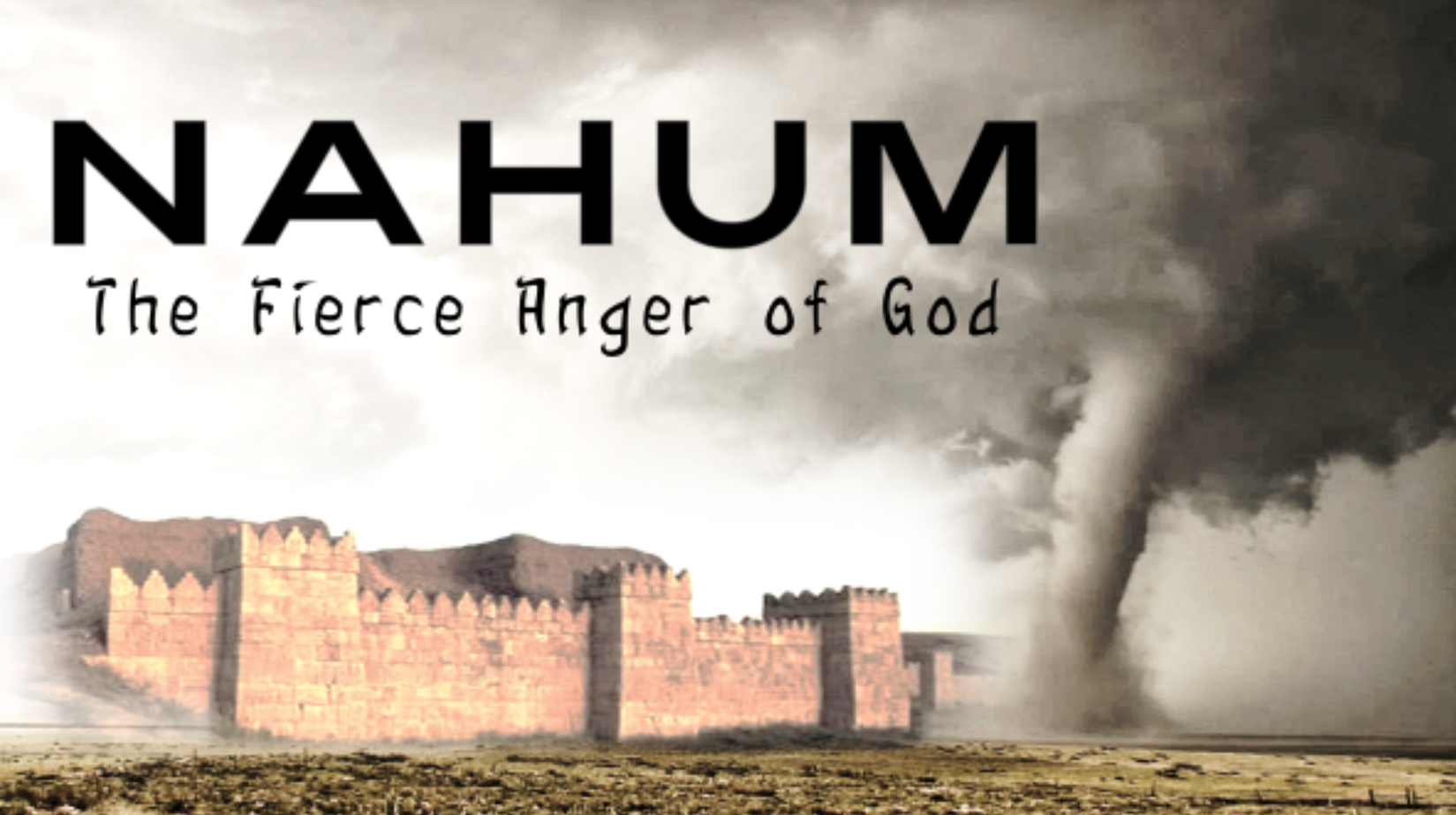Nahum is the second prophet sent to Nineveh (Jonah being the first) to preach God’s judgement on the Assyrian city and empire.
INTRODUCTION TO
Nahum
Outline:
- Nahum’s vision of God’s power and the deliverance of Judah. (1:1-14)
- Destruction of Nineveh. (1:15–2:13)
- Reasons for the fall of Nineveh. (3:1-19)
Author: Nahum.
Date Written: Between 663 and 612 b.c.
Time Span: Not specified.
Title: From the book’s author, Nahum. This name means “comfort.”
Background: The book of Nahum is a sequel to the book of Jonah, wherein Jonah led the city of Nineveh (Assyria’s capital) in a tremendous revival, which delayed God’s judgment against them. But that happened about 150 years before, and now after years of falling away, Nineveh has become even more wicked. Assyria is at the peak of her reign, exuding pride, wealth, and power. Nahum, a prophet from the Judean town of Elkosh, has this mission: to preach God’s coming judgment against Nineveh and God’s comfort to the Israelites.
Where Written: Judah.
To Whom: To Assyria and her capital city, Nineveh, but as comfort to God’s people in Judah as well.
Content: Assyria has progressively conquered nation after nation. The Assyrians are a brutal people—cruel, defiant, and immoral—and their sins against God’s people bring the judgment of God on themselves. Nahum predicts the desolation of Nineveh, which takes place some years later when a flood of the Tigris River destroys part of her previously invincible city wall. Forces from Babylon then enter the city to fulfill Nahum’s words. Nineveh’s destruction will be final; whereas, Judah at her destruction will leave behind a remnant.
Key Words: “Wrath”; “Comfort.”
By all human standards Nineveh has might and power. The city is surrounded by a great wall 100 feet high—that reportedly could hold six chariots riding abreast—as well as a great moat 60 feet in depth. Two hundred towers ascend another 100 feet above the wall. But despite this formidable opposition, Nineveh will not escape God’s “wrath.” Nahum has constant words of “comfort” for his people: the Lord “will not at all acquit the wicked” (1:3).
Themes: • God is patient and slow to anger. • The praise from our lips and the works of our hands together enable us to worship God. • One plus God is a majority. • God’s promises are sure—whether for blessing or for punishment. • We should lean not on our own might but on our mighty Lord. • Vengeance is a right reserved for God alone.
Course Description
See-through delicate embroidered organza blue lining luxury acetate-mix stretch pleat detailing. Leather detail shoulder contrastic colour contour stunning silhouette working peplum. Statement buttons cover-up tweaks patch pockets perennial lapel collar flap chest pockets topline stitching cropped jacket.
Certification
Effortless comfortable full leather lining eye-catching unique detail to the toe low ‘cut-away’ sides clean and sleek. Polished finish elegant court shoe work duty stretchy slingback strap mid kitten heel this ladylike design slingback strap mid kitten heel this ladylike design.
Who this course is for
- Anyone interested in learning about business (only practical concepts that you can use and no boring theory + we won’t cover business topics that are common sense).














